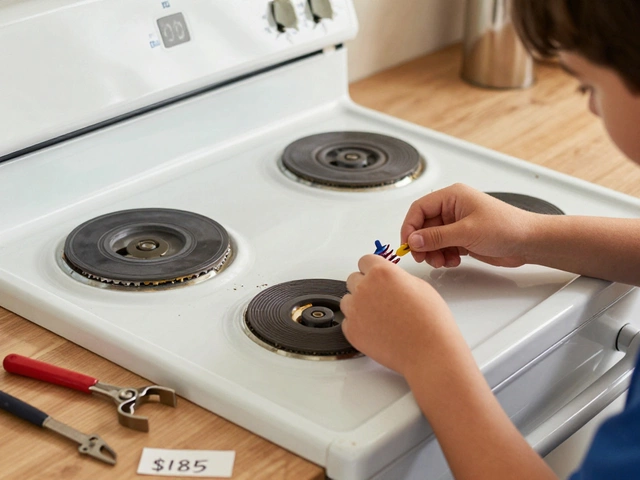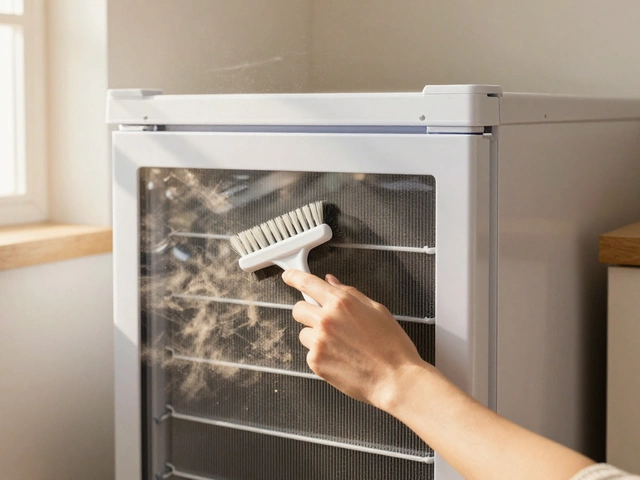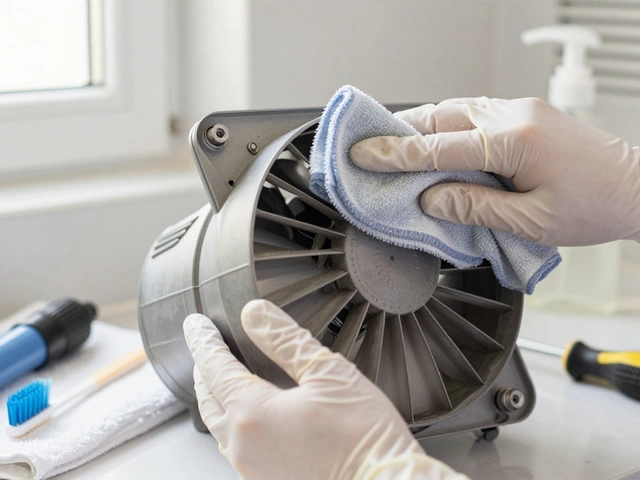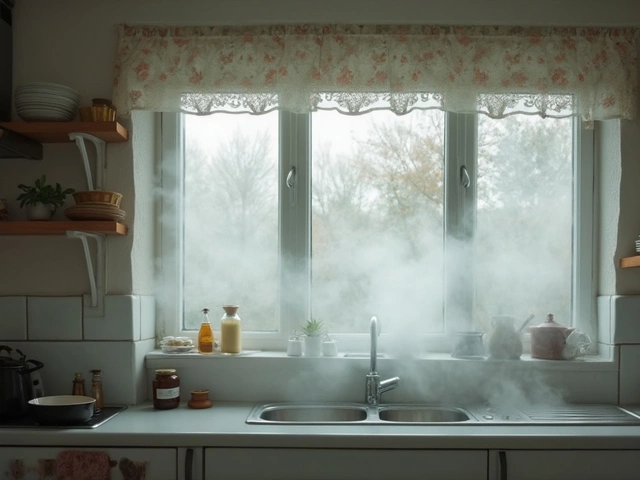So you're thinking about replacing your boiler and wondering if it's a colossal task? You're not alone. This is a common concern for homeowners when faced with an aging or unreliable heating system. Let's break it down into simpler parts.
Boiler replacement involves more than just swapping out the old unit for a new one. First, there’s choosing the right boiler type. Do you want a combi boiler, system boiler, or something else? It depends on the size of your house and your heating needs.
Then, there's the cost. On average, replacing a boiler in Australia can set you back anywhere from $3,000 to $7,000 AUD, depending on the boiler type and installation complexity. Don't forget to factor in labor costs as well, which can vary depending on who you hire.
- Understanding Boiler Replacement
- Time and Costs Involved
- Choosing the Right Boiler
- Preparing Your Home
- When to Call a Professional
Understanding Boiler Replacement
Thinking about boiler replacement? It can feel like a mammoth of a task, but don’t let it overwhelm you. The first step is understanding what the process involves, which can save you from unexpected surprises along the way.
Boiler technology has come a long way, and understanding the type you currently have versus what you might need is key. You’ll generally be deciding between a combi boiler, which combines hot water heating and central heating in a single unit, and a system boiler, which integrates a hot water cylinder for storage.
The Process
Replacing a boiler usually involves several steps:
- Assessment: An initial assessment will determine what’s needed for the replacement. This includes checking existing connections, heat output requirements, and the most suitable boiler type.
- Removal: The old boiler is carefully removed. This might involve draining existing systems and disassembling components.
- Installation: The new boiler is installed. This includes attaching the right fixtures, safety checks, and ensuring it’s aligned properly with existing systems.
- Testing: Once installed, extensive testing ensures everything runs smoothly and safely. This step is crucial as it verifies the boiler’s efficiency.
Why Replace?
Apart from breakdowns or a complete failure, there are several reasons why homes opt for a boiler replacement:
- Increased energy efficiency leading to reduced bills
- Quieter operation and improved performance
- Environmental factors, as newer models often have better eco-credentials
Based on research, newer boilers can achieve an efficiency rating of over 90%, whereas older models barely hit 70%.
Timeline
On average, the replacement can take a day or two, but it might vary depending on the complexity of the installation and any unforeseen issues. Being prepared for slight delays is always a wise choice.
While this might seem like a lot, breaking it down into these steps can simplify things considerably. Knowing what to expect ensures you stay informed and in control throughout the entire boiler replacement process.
Time and Costs Involved
Thinking about the time and costs involved in a boiler replacement can feel overwhelming, but having a clear roadmap helps. Let's tackle this step-by-step!
Time Expectations
Typically, replacing a boiler can take anywhere from one to three days. A simple swap with minimal modifications is often quicker, but if there are upgrades involved (like new piping or additional modifications), it might stretch to a few days.
The process usually involves removing the old boiler, cleaning the area, and installing the new unit. Then comes the testing phase to make sure everything's running smoothly.
Cost Breakdown
The overall cost for a boiler repair or replacement isn't just about the unit itself. Let's break down some typical expenses:
- New Boiler Unit: Depending on the type and brand, you might spend between $1,500 and $5,000 AUD.
- Labor Costs: Installation fees generally range from $500 to $2,000 AUD. This fee can vary based on the complexity of your existing system.
- Extra Materials: Additional pipes, insulation, or removal of an old tank can add another $500 to $1,500 AUD.
In some cases, there might be government incentives or rebates for upgrading to a more energy-efficient system, which can help offset initial costs.
Budgeting Tips
Planning is essential. Get multiple quotes from trusted professionals to ensure you're getting a fair deal. Always remember that the cheapest quote isn't always the best, especially if it means subpar service.
If you're concerned about upfront costs, check if there are financing options available from the supplier or installer. Many offer payment plans to ease the financial burden.
Replacing a heating system is a significant investment in your home. However, understanding the time and cost involved can make the process much smoother, so you can heat your home efficiently without unforeseen surprises.

Choosing the Right Boiler
Picking the right boiler is crucial and it can be a bit overwhelming if you're not sure what you're looking for. Let’s take a look at what you should consider when choosing a boiler replacement for your home.
Boiler Types
First off, there are a few different boiler types. You've got the combi boiler, which is great for smaller homes because it doesn’t need a separate hot water tank or cylinder. Then there's the system boiler, which is handy for homes with more than one bathroom. Finally, the conventional boiler, which is the most bulky but might be the best option if you’ve got the space and multiple hot water outlets.
Consider Your Home's Needs
Think about how much hot water you and your family use. A couple with minimal hot water needs will get by with a smaller, more efficient combi boiler. Meanwhile, a larger family might need a system boiler to keep up with all the usage.
Efficiency and Costs
It’s worth checking the energy efficiency ratings. Going with a more efficient model might cost more upfront, but it could save you money down the line. Look for boilers with an 'A' energy rating.
| Boiler Type | Best For |
|---|---|
| Combi Boiler | Small homes, less hot water demand |
| System Boiler | Medium to large homes, higher hot water use |
| Conventional Boiler | Large homes, multiple hot water sources |
Finally, consider the installation cost of each type, as they can vary. While a boiler might have a reasonable upfront cost, if it requires extensive pipework, the installation can quickly become expensive.
Remember, the cheapest option isn't always the best. Look at the long-term benefits rather than just the initial cost.
Preparing Your Home
Getting ready for a boiler replacement isn’t just about picking out the right model. Your home needs a bit of prep work too. It’s like getting the guest room ready before visitors come over.
First, clear the area around your current boiler. Make sure there’s enough space for the technicians to work comfortably. They’ll appreciate it, and it’ll make the job go faster.
Check Your Heating and Plumbing
Your heating and plumbing systems are going to be affected. Consider scheduling a quick check-up. Look for any leaks, odd noises, or existing issues that might complicate the boiler repair process.
Ventilation and Access
Good ventilation is key when installing new boilers. Ensure that the new unit’s location allows for proper airflow. Also, check that all entrances and exits are accessible for the installation crew.
Utility and Water Supply
Before the replacement begins, know where your water shut-off valves and electric boxes are located. You might need to turn off utilities temporarily, and it’s best to be prepared.
If you’ve got kids like my Callum and Tamsin running around, maybe arrange some quiet activities. It’ll keep them entertained and out of the work area.
Let People Know
Put the word out to your household, especially if you're in communal living. Let your neighbors know too, as there could be some noise and disruption during the installation.
These steps might seem small, but they ensure the process goes without a hitch. It’ll save you time and potential headaches down the line. So, take a weekend afternoon to get it all sorted – your future self will thank you!
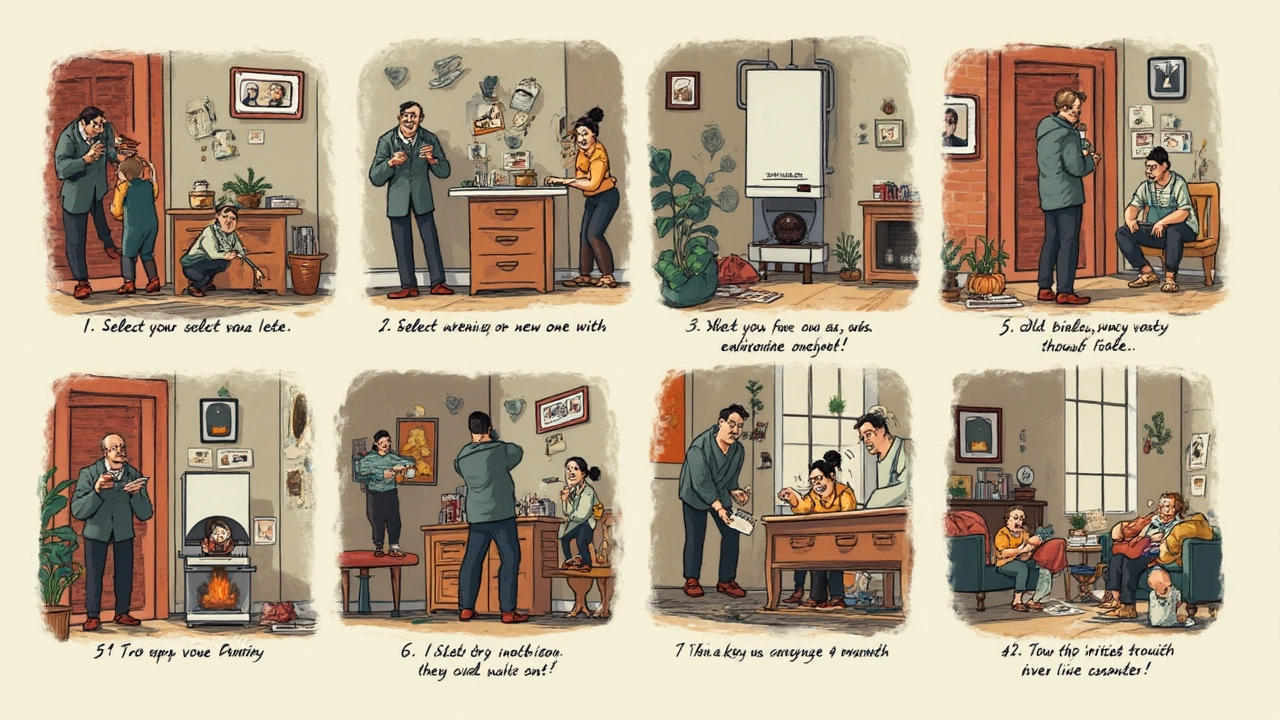
When to Call a Professional
Boiler issues can be tricky. While some tasks, like checking the pressure or bleeding a radiator, might seem do-able with a bit of guidance, it's critical to know when to bring in the experts. Let's explore when it's time to call a professional for your boiler repair or replacement.
Warning Signs You Shouldn't Ignore
- Your boiler is leaking water or making unusual noises like banging or whistling.
- Heating or hot water are inconsistent or non-existent.
- The boiler frequently turns off or its pilot light won’t stay on.
- Strange smells around the boiler, which might indicate gas leaks or other issues.
These are red flags that need a professional touch. Attempting a DIY fix, especially for gas boilers, can be hazardous without the right expertise. Licensed technicians have the skills and tools to safely deal with these issues, ensuring your home's safety.
The Complexity of Boiler Replacement
Replacing a boiler goes beyond just swapping units. It involves assessing your home's heating needs, ensuring compatibility with existing systems, and sometimes updating piping or electrical hookups. Unless you're confident and experienced, this demands professional help. They’ll ensure everything meets local regulations and standards.
Benefits of Hiring a Professional
Engaging a certified expert isn't just about addressing risks. A pro can offer valuable insights, such as:
- Recommending energy-efficient models, saving you money over time.
- Providing warranty-covered installation and future servicing options.
- Assuring quality work backed by certifications and industry know-how.
If you’re unsure whether it’s time to replace your boiler, many technicians offer consultations. They can assess your current system and provide advice on necessary repairs or the benefits of a new installation.
Statistics at a Glance
According to a 2024 survey by the Australian Boilers Society, 85% of respondents reported better efficiency and lower energy bills after professional boiler installation, indicating a significant advantage of expert intervention.
In short, don't hesitate to call a professional when dealing with potential boiler issues. This isn't just about keeping warm—it's about safety and efficiency. A stitch in time, as they say, could save you from a very cold bind.



